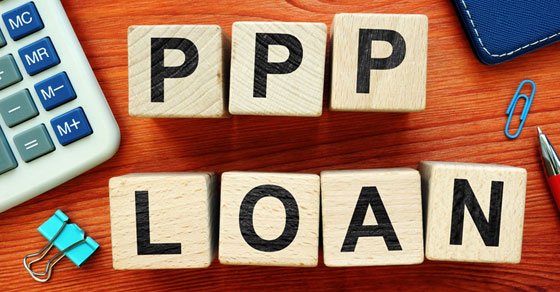Forgiven PPP Expenses Aren’t Deductible
 The IRS has issued guidance clarifying that certain deductions aren’t allowed if a business has received a Paycheck Protection Program (PPP) loan. Specifically, PPP expenses are not deductible if both:
The IRS has issued guidance clarifying that certain deductions aren’t allowed if a business has received a Paycheck Protection Program (PPP) loan. Specifically, PPP expenses are not deductible if both:
– The payment of the expense results in forgiveness of a loan made under the PPP.
– The income associated with the forgiveness is excluded from gross income under the Coronavirus Aid, Relief, and Economic Security (CARES) Act.
PPP Basics
The CARES Act allows a recipient of a PPP loan to use the proceeds to pay payroll costs, certain employee healthcare benefits, mortgage interest, rent, utilities and interest on other existing debt obligations.
A recipient of a covered loan can receive forgiveness of the loan in an amount equal to the sum of payments made for the following expenses during the 8-week “covered period” beginning on the loan’s origination date:
– Payroll costs.
– Interest on any covered mortgage obligation.
– Payment on any covered rent.
– Covered utility payments.
The law provides that any forgiven loan amount “shall be excluded from gross income.”
Deductible PPP Expenses
So the question arises: If you pay for the above expenses with PPP funds, can you then deduct the PPP expenses on your tax return?
The tax code generally provides for a deduction for all ordinary and necessary expenses paid or incurred during the taxable year in carrying on a trade or business. Covered rent obligations, covered utility payments, and payroll costs consisting of wages and benefits paid to employees comprise typical trade or business expenses for which a deduction generally is appropriate. The tax code also provides a deduction for certain interest paid or accrued during the taxable year on indebtedness, including interest paid or incurred on a mortgage obligation of a trade or business.
No double tax benefit
In IRS Notice 2020-32, the IRS clarifies that no deduction is allowed for an expense that is otherwise deductible if payment of the expense results in forgiveness of a covered loan pursuant to the CARES Act and the income associated with the forgiveness is excluded from gross income under the law. The Notice states that “this treatment prevents a double tax benefit.”
More Possibly To Come
Two members of Congress say they’re opposed to the IRS stand on this issue. Senate Finance Committee Chair Chuck Grassley (R-IA) and his counterpart in the House, Ways and Means Committee Chair Richard E. Neal (D-MA), oppose the tax treatment. Neal said it doesn’t follow congressional intent and that he’ll seek legislation to make certain PPP expenses deductible. Stay tuned.
